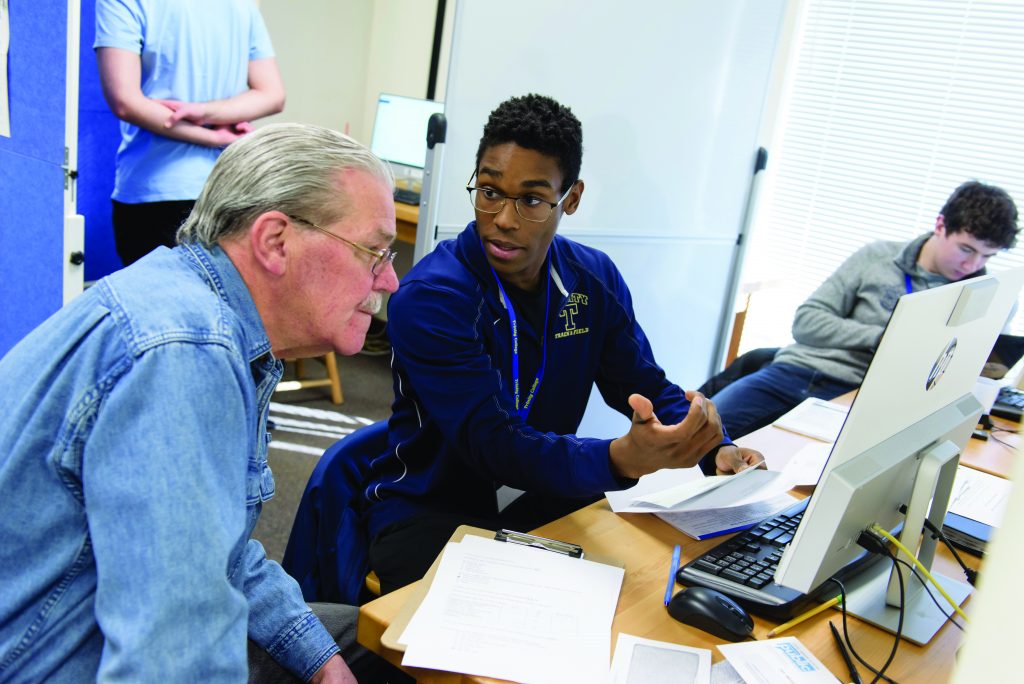
A new pilot program in spring 2019 trained Trinity College students to help prepare federal and state income tax returns at no cost for Hartford residents.
The tax clinic at Trinity’s Trinfo.Café was one of several Volunteer Income Tax Assistance (VITA) locations in Hartford coordinated by United Way and The Village for Children and Families. Generally, VITA serves those who make less than $55,000 a year, persons with disabilities, and taxpayers who speak limited English.
Visiting Lecturer in Political Science Serena Laws supervised the students, who offered appointments in English and in Spanish. “I’ve been volunteering for the past two years, and I thought it was a really good fit in terms of giving Trinity College students a good learning experience,” Laws said. “It is a great window into tax policy, social policy, and a helpful way students can provide for the community—doing people’s taxes for free.”
Trinity students enrolled in Laws’s “Tax Policy and Inequality in Hartford” course took a two-day training seminar to become certified VITA volunteers. “They learn how to use the software and to work in the tax clinic. They are not public accountants but can handle basic tax preparation,” Laws said. She added that students in her Trinity class learn about tax preparation and also understand greater issues surrounding tax policies and social inequality.
1823 Scholar Mary Meza Celis ’22 said she wanted to try something new and took the course to gain valuable and practical experience. “The class is in a different field than what I am used to, as I am studying environmental science, and I wanted to explore fields outside of my intended major. Also, tax preparation is useful to know before you enter the adult world,” Meza said.
She added that the course also teaches about relevant policies and social issues. “Learning about how certain government laws are changing, who that benefits, and how has been really interesting,” said Meza, who also works at Trinfo.Café.
Based on the success of this year’s pilot program, Laws hopes to expand the clinic. “This pilot program is a small-scale version of what we hope to do in the future. And we’re hoping to have the funding to expand,” she said.
Trinfo.Café is a community space at 1300 Broad Street that offers computer literacy training for adults and youth, media literacy for teens, and an open computing center for city residents. Carlos Espinosa, director of Trinity’s Office of Community Relations and Trinfo.Café, said, “We work with residents and community organizations in the neighborhoods surrounding the college. Trinity students are central to running Trinfo in the evenings and on weekends, as well as teaching all of our adult computer literacy classes and youth after-school and summer programs on-site and at various public schools near the college.”
